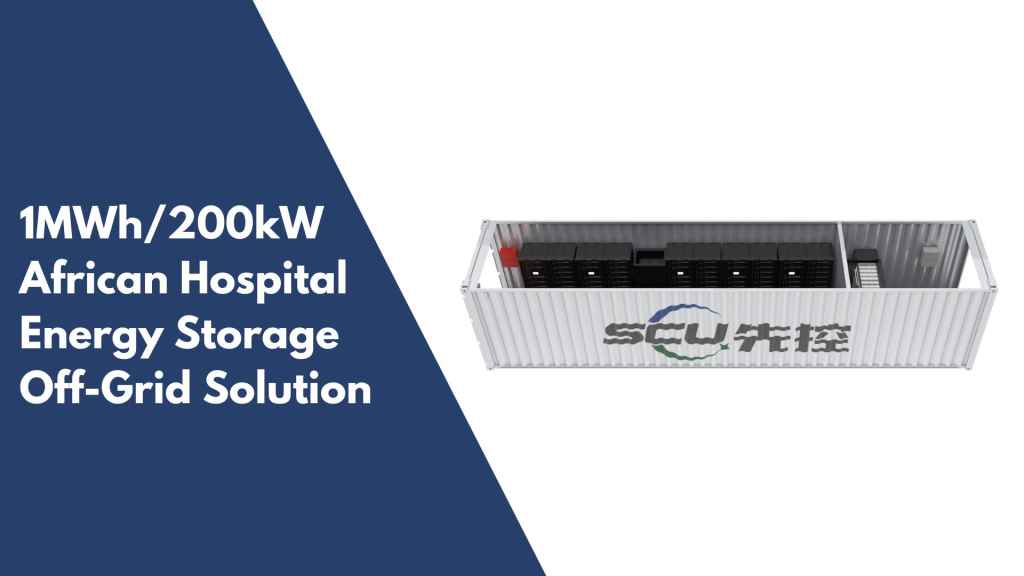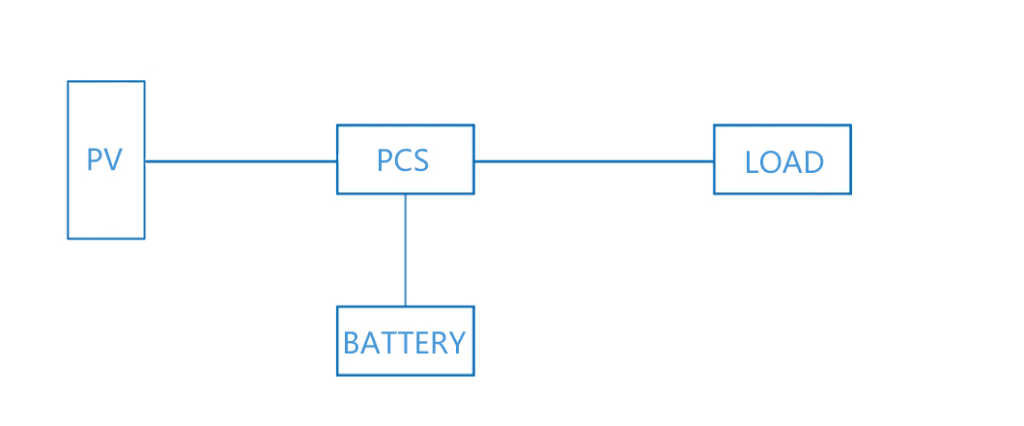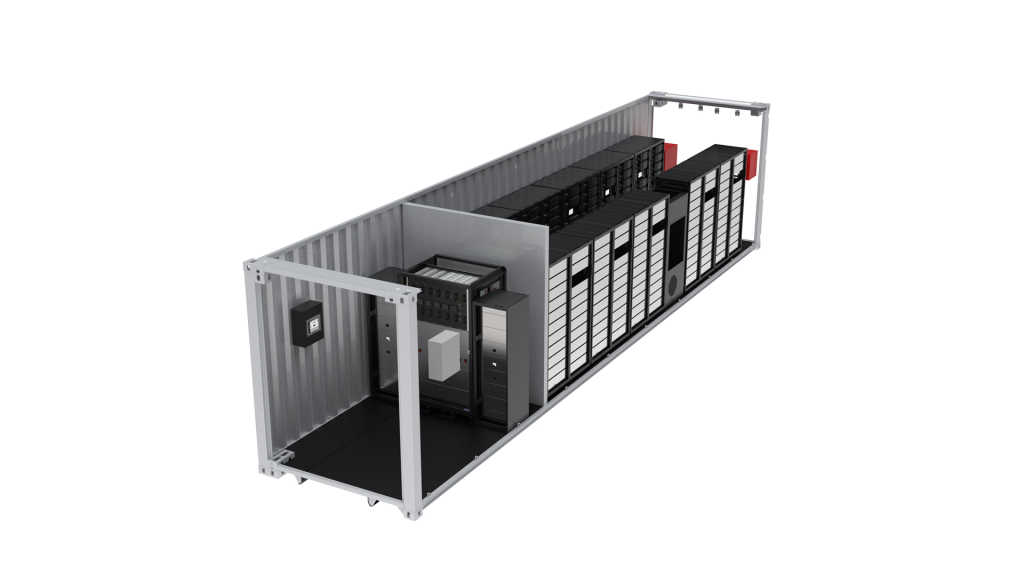In the medical field, the stability of power supply is key to the normal operation of hospitals and the safety of patients. However, faced with the challenges of lack of electricity and high noise from diesel generators in African hospitals, SCU’s energy storage system technology provided an innovative solution, successfully achieving photovoltaic during the day and energy storage at night, and ultimately supplemented by diesel generators’ clean energy power supply system.

Challenge
Due to insufficient power supplies, African hospitals have long relied on expensive and noisy diesel generators. This traditional power generation method imposes an economic burden on hospital operations and creates environmental and noise problems. Therefore, finding a more economical and environmentally friendly alternative has become a top priority.
Solution
The 20ft energy storage container solution (1MWh/200kW) we provided for the African hospital uses a PV + energy storage system, which enables the hospital to make full use of the energy storage system to store electricity during the day and supply power at night while generating photovoltaic power, thus achieving peak reduction. The goals of valley filling and capacity price reduction. This system uses an 860kWh battery, a 200kW power conversion system and a 300kW PV system to provide efficient, clean and sustainable power support for the hospital.

In the design of hospital energy storage systems, we take into account the needs of special hospital locations. In view of the hospital’s high requirements for electricity, we use large-capacity, high-efficiency energy storage batteries, coupled with advanced energy management systems, to ensure the stability and reliability of the hospital’s power supply. In addition, we pay attention to the maintainability and scalability of the system. Considering the long-term operation needs of the hospital, we adopt a modular design to make the entire system easier to maintain and expand.
Advantage
As a place with extremely high power requirements, our energy storage system provides hospitals with many advantages. In the event of power shortage or failure, the energy storage system can quickly switch to backup power to ensure the continuous operation of operating rooms, emergency centers and life support equipment, thereby ensuring the safety of patients. At the same time, in view of the large fluctuations in the hospital’s power load, the energy storage system brings reliability and stability to the hospital’s power supply by balancing the power grid load, reducing the peak power consumption, improving the stability of the power grid, and ensuring the normal operation of medical equipment double protection.
PV + Energy Storage Off-Grid for Self-consumption
“Spontaneous self-consumption” in the PV + energy storage off-grid system refers to the system generating and utilizing energy on its own, achieving self-sufficiency and not relying on external power grids for power supply. This feature means that the PV power generation system converts solar energy into electrical energy and, at the same time, stores excess electrical energy through the energy storage system to provide a stable power supply when solar energy is unavailable or insufficient.
In this system, the self-consumption mechanism allows the equipment to operate independently without being connected to the power grid. When photovoltaic power generation exceeds current demand, the excess power will be stored in an energy storage system. At night or when there is insufficient light, the system will extract electrical energy from the energy storage device to meet the electricity demand, achieving an independent electricity supply.
This self-sufficient energy model helps improve system reliability and stability and reduce dependence on traditional power grids. Especially in some remote areas or emergencies, the self-consumption characteristics of PV + energy storage off-grid systems can provide users with reliable power support.
Through the PV + energy storage system we provide, the hospital can achieve off-grid self-use and get rid of over-reliance on the traditional power grid. During the day, solar energy is absorbed through the photovoltaic system, part of which is used for the hospital’s own needs, and the other part is stored in efficient energy storage batteries. At night or during peak power demand periods, the hospital can still provide a stable power supply. Finally, it uses diesel generators as a backup to build a robust and efficient clean energy power supply system.
A win-win situation for environmental protection and economy
This power supply solution not only enables the hospital to achieve a clean and efficient power supply and reduce operating costs but also has a positive impact on the environment. By reducing its reliance on diesel, the hospital has made a positive contribution to community health and environmental protection, achieving both environmental and economic benefits.
Outlook
The successful application of SCU’s PV + energy storage system in African hospitals provides a feasible energy storage solution for global medical institutions. It not only injects new impetus into African hospitals but also successfully eliminates the high cost of diesel generators. Noise problem. In the future, we will continue to provide efficient and sustainable power support for the medical field and promote a new era of clean medicine. This collaboration sets a model for global promotion and application of clean energy technologies.

